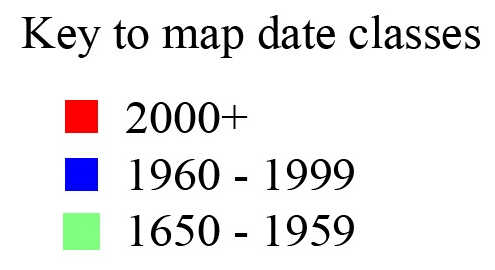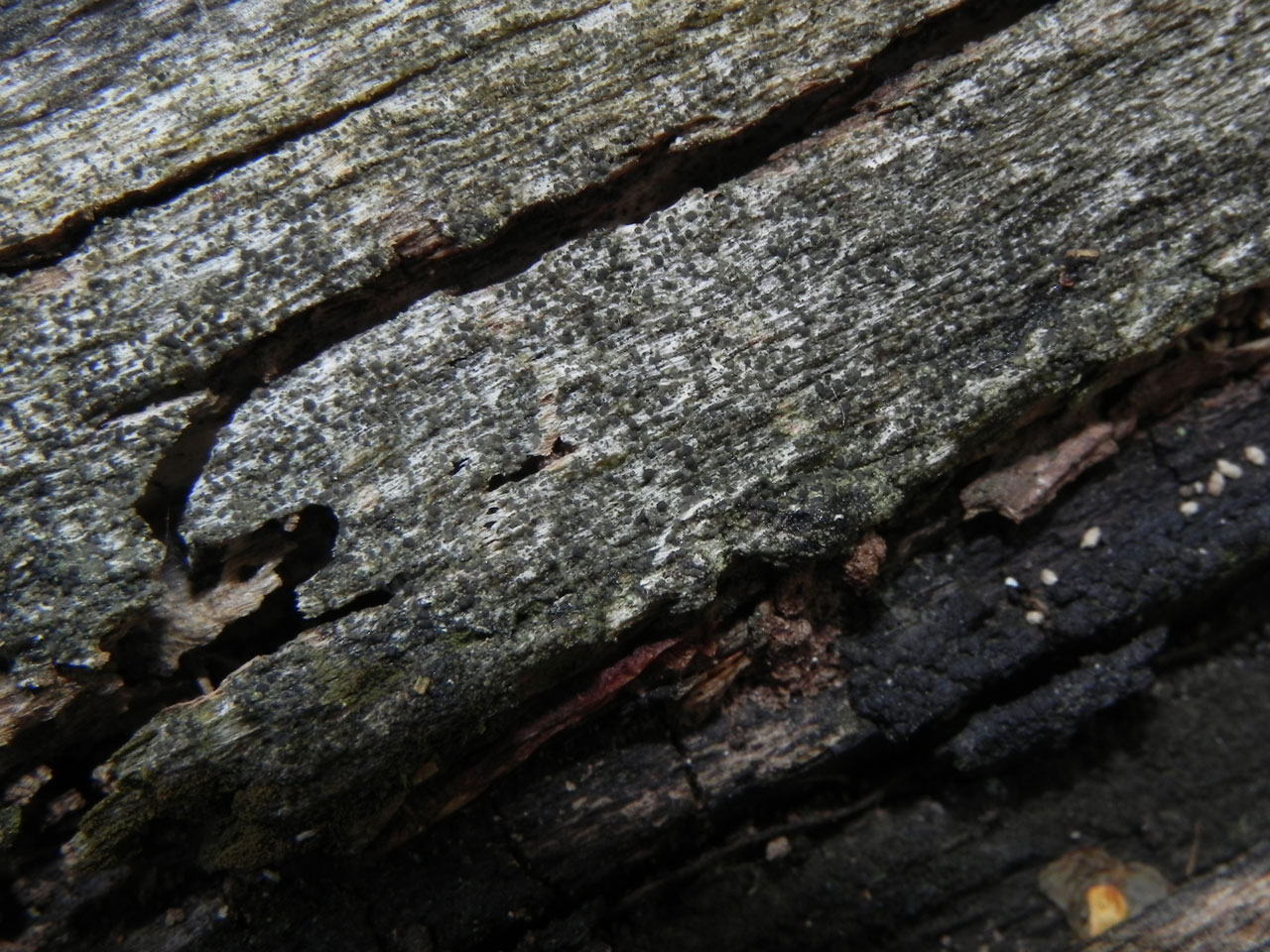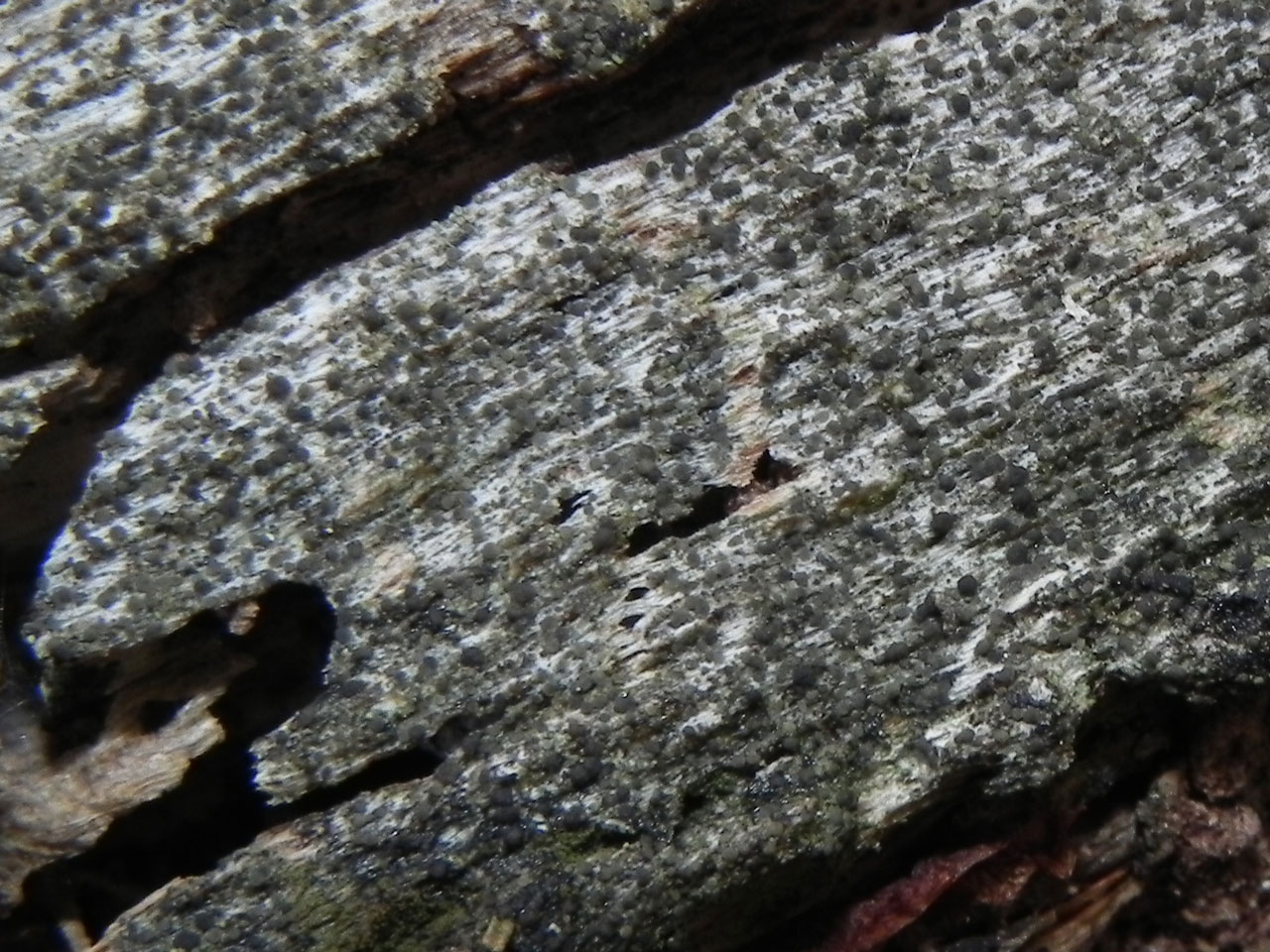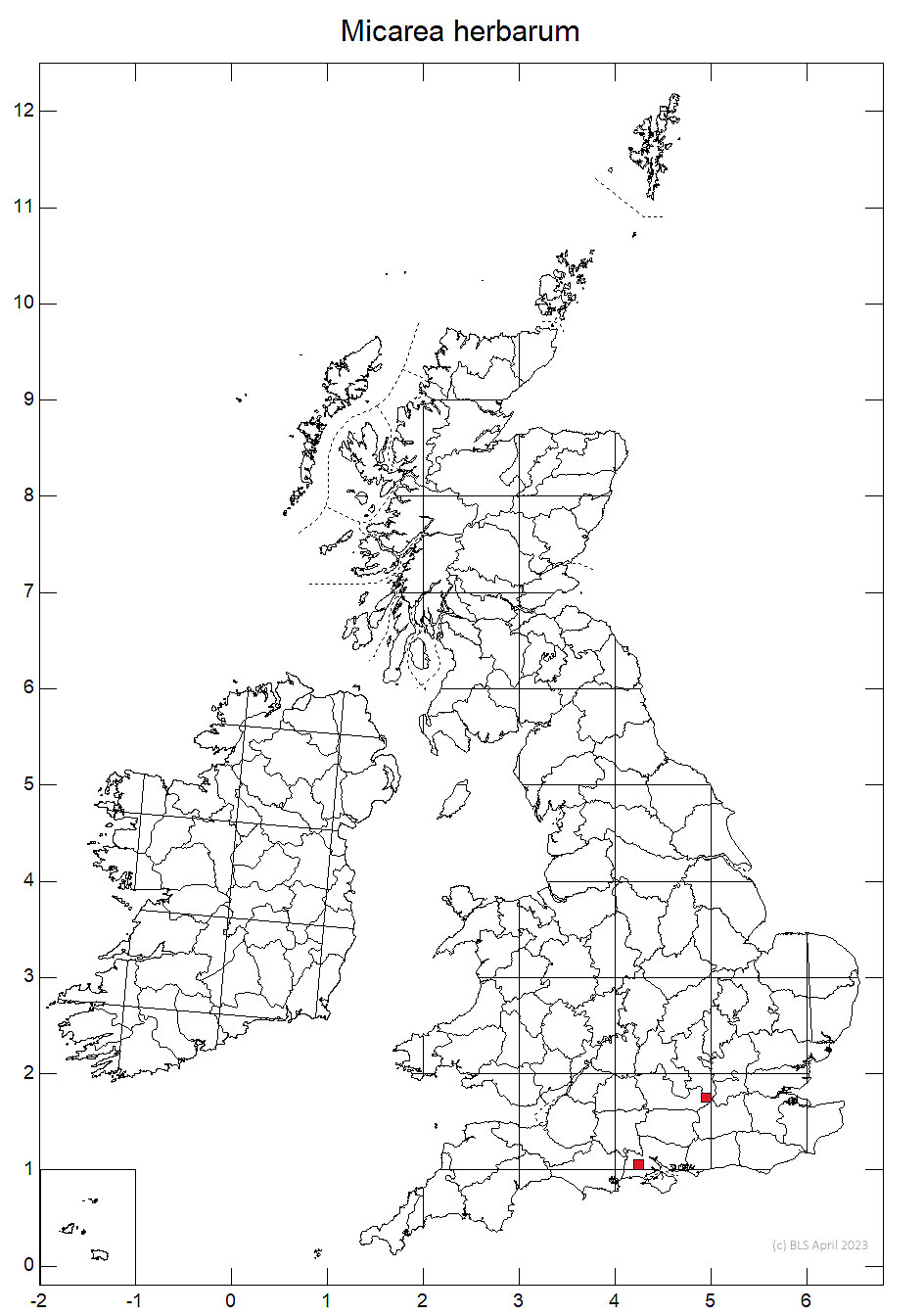Micarea herbarum
A lichen of damp habitats such as soft and decaying wood, on standing dead trunks, on dead and wet stems of herbaceous plants, or directly on soil, with abundant, dark brown to black, subglobose, immarginate, apothecia 0·15 to 0·25 mm diameter, on a very thin, greenish thallus, which is frequently covered with gelatinous algal cells. Apothecia and pycnidia with Sedifolia-grey (K+ violet, C+ violet), spores (0–)1 septate. Similar to M. denigrata, but lacks gyrophoric acid (C+ red) and has longer mesoconidia (3·8–6·1 × 1·0–1·2 (–1·3) μm in M. herbarum, (3·0–4·2(–5·0) × 1·4–1·8(–2·0) μm in M. denigrata).
Reported as widespread in the Netherlands and not confined to high quality habitats. In Britain report twice, once from a well rotted fallen Beech trunks in pasture woodland in the New Forest and once from damp Oak lignum dumped in a pit in parkland in Windsor Forest (Berkshire). Both were recorded during detailed surveys of high quality habitats, but this lichen is likely to occur much more widely given its behaviour in the Netherlands.

van den Boom, P. P. G., Brand, A. M., Coppins, B. J. & Sérusiaux, E. (2017) Two new species in the Micarea prasina group from Western Europe. The Lichenologist 49: 13–25 Link
Text by Neil A Sanderson


